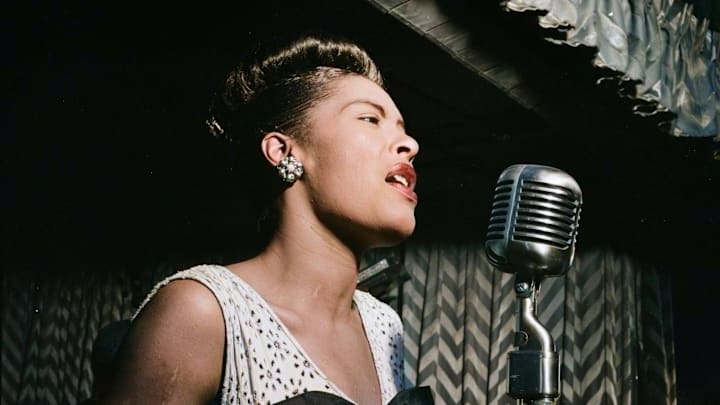"A Change Is Gonna Come", Sam Cooke, 1964
Oof, I think I've had quite enough of the Vietnam War. So let's dive into the oh-so-happy field of civil rights. I imagine the younger folks here might be surprised to learn that in 1964, not only businesses but public facilities could legally discriminate on the basis of race, gender, religion, or national origin. Come to think of it, you might not be that surprised after all.
Well, the landmark Civil Rights Act changed all that in July of 1964. But pop sensation Sam Cooke lived in a very different, very segregated world. He had been turned away time and again from whites-only motels when on tour. Think Green Book without the white savior.
Cooke was inspired to write his hopeful song on the album Ain't That Good News, released in February 1964. The single - a B-side at that - came out in December of that year. Maybe it was a Christmas present for President Lyndon Johnson, who pushed the civil rights legislation through.
"Strange Fruit", Billie Holiday, 1939
I'll admit it's quite likely that more people have heard Gambino's savage statement on gun violence, or Green Day's assault on WDubya, than the Billie Holiday classic. More's the pity, as "Strange Fruit" protests one of the worst atrocities of any age.
Nothing like a little lynching to spark a party. Or a lot of them. Now picture that you're Black, and it's 1939, and you're driven to speak out. Driven to speak out when glancing at a white person the wrong way can get you killed.
Granted, Billie Holiday was no ordinary citizen. By 1939, she'd already been the featured vocalist for two of the most successful jazz orchestras of the time, Count Basie and Artie Shaw. Still, performing a song written as a protest against lynchings was a bold step.
Written by Abel Meeropol, Anne Shaffer, and Laura Duncan in 1937, it was never performed outside of the relatively safe confines of New York City. Holiday was introduced to it and quickly made it her closing number.
Remember those record industry weasels at Columbia? Yeah, they were already around and refused to record the song, fearing reprisals in the South. They were safe in their offices on Seventh Avenue in New York City, while Holiday was singing "Strange Fruit" in Birmingham, Alabama.
Thankfully, they allowed her to record it for Commodore Records. Picture the courage of a Black woman putting out a song excoriating lynching in 1939. She'd probably be assaulted for it today.
Sadly, the protest song seems to be a lost art. Or perhaps it isn't the songs themselves that have lost their power. Maybe too many people have lost the power to be moved. Maybe, just maybe, it's time to change that.
